3. Practical ideas for the church and congregations
Worshipping in other languages, holding festive church events with people of different origins, standing by and supporting refugees… Creating a culture of welcome is possible…
When in autumn 2015 almost 900,000 refugees came to Germany, the churches showed what consequences follow from witness to their faith. Presbyteries, synods and leading clergy spoke out in favor of an open society; countless volunteers invested time, energy and imagination in providing a welcome; parishes made premises available. And to this day they organize language courses and mentoring; they give backing to volunteers and train them in legal matters, integration issues and multilingual services. The commitment of churches for refugees does not remain without repercussions: the experiences of Christians and expectations of the church have also changed the life of the churches themselves.
With the aid of the statements made in 1.4. about the nature of the church, we will now give examples of projects and experiences from the area of the Evangelical Church of Westphalia to encourage discussion and further reflection.
3.1 Being church together
In the street we meet people from different nations. Kindergartens and schools are international nowadays, as are many (church) choirs. How do we want to respond to this international presence: are they guests or members of God’s house?…
The Lydia congregation wants to become international
The Lydia congregation has the motto “Being church together – becoming an international congregation”. That is for good reason. Its membership roll includes Christians from 62 nations. Since 2016 it has been active in involving people with migrant roots in the whole of parish life. Something that is quite normal in kindergartens and children’s services is now to become the norm in other areas of church life. From 2020 this project will also be reflected in the leadership structures: persons with international roots are to stand for at least two positions in the new presbytery. “We want to interweave our own traditions with new elements” – that is how the congregation describes the goal of this approach.
The Farsee-speaking congregation in Paderborn
About 50–70 Farsee-speaking Christians hold a services and Bible studies in Paderborn’s St Luke’s Centre. Once a month there are joint services with the Protestant congregation there. As a visible sign of unity, there are baptisms, several hundred in the last few years. The Lord’s Supper is also celebrated. Pastor Mehrdad Sepehri Fard, who started in a voluntary capacity, has had a project position here since autumn 2017. He offers “Pastoral care for Persian-speaking Christians” and responds to requests for support from other regions of Westphalia as well. He says: “Christians of other languages and origin feel at home in the Westphalian church if they can contribute not only hymns and rituals but also their language.” That is why more and more congregations are going over to holding readings in different languages at their services. That is a way of bringing in Christians from other countries.
The ‘congregations of other languages and origins’ arose in the 1970s and often lived as good neighbors with Protestant congregations, some as tenants or fellow-residents in parish rooms and churches. The contact was often a challenge – linguistically, culturally and also theologically. Yet some migration congregations now exist in the second generation. Children and young people speak better German than the native language of their parents. They were brought up in Germany. They have a great interest in cooperating with local congregations. Meanwhile, with the support of the Westphalian, Rhine and Lippe churches in North Rhine-Westphalia, a network for good cooperation has developed: the International Church Convention.
The International Church Convention
The International Church Convention of Rhineland-Westphalia (IKK) has about 160 congregations, broadly speaking from Reformation churches, which cooperate ecumenically amongst one another and with the Evangelical Church in the Rhineland and the Ev. Church in Westphalia. The international congregations range from charismatic-Pentecostal to Presbyterian, Methodist, Lutheran and Reformed. They can join the IKK if they accept the basis of the WCC as:
“A fellowship of churches which confess the Lord Jesus Christ as God and Savior according to the scriptures, and therefore seek to fulfill together their common calling to the glory of the one God, Father, Son and Holy Spirit.“
The member churches and congregations offer people from the same language and cultural background a bit of home away from home. They are entry points for new arrivals and help them to cope with a new environment. They also do a lot to help refugees.
The IKK links up these congregations with the Rhineland and Westphalian churches, offering further training, advice and support. That ranges from baptism of asylum-seekers to the Reformation roots of the different traditions, or the understanding of mission and discipleship. The exchange is a great help when it comes to understanding and bridging cultural differences.
The bonds with other congregations and worldwide Christianity is fundamental for the understanding of congregation and churches. This is shown by the very opening of New Testament letters: “Grace to you and peace from God our Father and the Lord Jesus Christ”. Paul writes to “To the church of God that is in Corinth, to those who are sanctified in Christ Jesus, called to be saints, together with all those who in every place call on the name of our Lord Jesus Christ” (1 Cor 1:2.3). Local congregations are always part of a greater whole. Communion with Christ embraces, puts in perspective and transcends natural, social and national forms of community, says a document by the Community of Protestant Churches in Europe, of which the Evangelical Church in Westphalia is one of the founding members. This is the vision of the one, tangible and world-embracing church, which calls its common unity in Christ the “body of Christ”. If we follow this vision, it becomes clear that God presents me with something through the alterity of the other. God it is who challenges and enriches us through that which is strange. God meets us in the stranger: you welcomed me.
Despite all the difficulties, congregations, groups and individuals time and again in our church experience human, substantive, theological and spiritual enrichment when they engage with strangers and new situations. The following examples invite us to ask for suitable answers in our own congregation or work area.
Citizens with the saints and members of the household? (Eph 2:19)
In the midst of our preparations for the New Year reception we got this email: “Is the New Year reception going to be international every time? Then we are not coming. The choir was so chaotic last year that we don’t want that again!”
There follow crisis mails, phone calls, conversations. The result of all sensitive inquiries: the acoustics! It was all too loud! The sound system of the African band was not compatible with ours. There was auditory feedback, speeches and announcements seemed to be shouted, our own system was overloaded. A cautious questions: can you tone it down?
So you are no longer strangers and aliens, but citizens with the saints and members of the household of God?
Sunday afternoon – a member of the Tamil congregation is at the door. “Our pastor does not want members of our congregation to keep attending the international services. There is too little Tamil character and not enough time for our pastor in the service.” At the New Year’s reception he was supposed to join other pastors in saying the benediction. A personal blessing for everyone who would like it – in the languageof the respective pastor. He declined.
Citizens with the saints and members of the household of God?
The pastor of the Korean congregation is upset. He had agreed to take part in a dialogue sermon. This was to be with representatives of the Tamil congregation and himself. “I give my sermons by myself. How can someone else stand there next to me?” Perplexity and uncertainty. We make an appointment for four of us and work out a dialogue sermon together – the Tamil student explains the secular aspects and the Korean pastor the spiritual ones.
Citizens with the saints and members of the household of God?
After a lot of to-ing and fro-ing and sleepless nights, finally it is time for the worship service. The African band has understood the issue: it sings a cappella, only with amplified guitar. Our sound system works perfectly thanks to a church council (presbytery) member with technical skills. The dialogue sermon goes down very well. The Tamil pastor attends, despite his refusal, and blesses those who line up before him. A delegation from a Tamil congregation we know in Duisburg is also present.Citizens with the saints and members of the household of God!
One Reply to “3.1 Being church together”
Leave a Reply
3.2 Celebrating faith together
Worship as the centre of church life: different traditions and styles of piety merge. Elements from various liturgies and prayers come together…
“I want to think for myself” –Hasan Nabeel sings in the Luther Oratorio
The Pakistani is probably one of the most unusual singers in the modern Luther Oratorio. Before that, Hasan Nabeel did not know who Luther was. “I am in the process of learning more about him,” says the 31-year-old, who has been in Germany since 2015. In the choir he is not only getting to know more about his new faith and the German language, he has also found friends.
Nabeel had contact with Christianity back in Pakistan. He attended a church with a friend, he says. His Muslim family forbade him to go again. He decided to flee. In August 2016 Hasan Nabeel was baptized. When the strong man, who worked as a blacksmith in Pakistan, talks of this he beams: “I looked forward to it for so long. Before baptism I thought about how much I had lost through fleeing but now I see what I have gained.“
His favorite song in the oratorio is called “Thinking for yourself”. It contains the line “I want to think for myself – alone with God.” What fascinates him about Luther is the message of freedom: “We can make decisions ourselves and do not need to be like other people. We are only responsible to God.”
People gather in worship to be near to God, to praise God and spread out their concerns and fears in prayer. They seek calm and comfort, fellowship with one another and with God and a sermon that is close to their lives. For many, worship is a place of reassurance where they feel at home and a sense of community.
A service of worship keeps alive a long tradition. Many congregations here see the centre of community life. It is all the better when people bring in their experience with other worship traditions and other forms of spirituality. If the service is held “in the responsibility and with the participation of the whole congregation” this can lead to new diversity of sounds and rhythms, to listening to God’s word in other languages and to intensive common prayer.
The act of worship itself has a migration background. Elements from liturgies and prayers from Israel, Syria, Byzantium, Rome and North Africa were melded into what people in Westphalia today feel to be their worship home. “Our” Protestant service reflects the worldwide oikoumene from two millennia.
You can also feel that in the music. Protestant church music was exported worldwide through mission, but also in brass bands. Churches adopted them and made them part of their own tradition. But it also went the other way: gospel music and songs from the ecumenical movement have entered our German services and hymn books. Music overcomes cultural and language barriers and choirs are a good way of getting into contact with a congregation. The spirituality and preaching style of Christians of other languages and origins may be strange to Germans but singing and music can help them experience how praising God unites people.
What is important in all this is the basic attitude of the congregation. Is the service the “best room”, displaying the finest possessions of the parish, or is it the warm kitchen in which all God’s children can come home, still their hunger and thirst and enjoy fellowship?
On the internet (kircheundmigration.ekvw.de) you can find resources and links to liturgies, prayers and Bible translations in different languages. There are also materials on the baptism of asylum-seekers, faith courses and partaking in Holy Communion:
4 Replies to “3.2 Celebrating faith together”
-
Translated from German
– offers possibilities to present different elements of liturgy in a worship service or event
– The […]passage [celebrating worship service itself has migration background…] describes (just for remembering) something normal
– permit another form of piety and give a feeling of being at homeAuthor: Participants of the circuit synod in Münster, 26.06.2019
-
Translated from German
1. Is it about interreligious worship services or just Christian worship?
2. What is the aim of item 3.2? What is to be achieved?Author: Participants of the circuit synod in Münster, 26.06.2019
-
Translated from German
Participation in the worship service by taking-over of worship elements (prayer, sermon, song)
Author: Participants of the circuit synod in Münster, 26.06.2019
-
Translated from German
Here a model for an interreligious community can be seen – “ liturgical nearly friendship” as first step towards community with Muslims among others in school or congregational worship services and everywhere where worship services are celebrated.
Author: Participants of the circuit synod in Münster, 26.06.2019
Leave a Reply
3.3 Passing on and witnessing to faith
Bible sharing, family love, cheerful hope, prayers and hospitality are part of Christian faith. Yet the right to freely practise one’s religion does not apply everywhere. That is why it is a Christian duty to stand up for people who are persecuted for their religion…
Maryam
“I was brought up in a Muslim family but in Iran I always had great problems with the Muslim distinction between men and women, e.g. in court. So I rejected a God who does not love me and lived without faith in Iran. […] In the refugee residence my children sometimes talked to the couple S. about Christian faith […] One day I listened in on a conversation. In the story, men wanted to stone a woman caught in adultery but Jesus came and stopped them, saying that whoever is without sin should cast the first stone. […] Jesus’ words moved me greatly. Consequently in Iserlohn I went to an advice center and found out about Christian communities there.”
According to the Apostle Paul, the whole life of a Christian is worship. Faith is shown in love as to brothers and sisters, in cheerful hope, constant prayer, harmony and hospitality to strangers. Yet worship also involves speaking up against prejudiced and hateful talk and actions in everyday life. In statements and discussion forums we read disparaging remarks about migrants and anyone who works with them. Christians are oppressed and persecuted in many countries in the world. Many religions and beliefs are threatened if they stand up for justice. Our church is committed to counteracting all that questions the human dignity of those who are ‘different’. That also includes standing up for the right to freely practice religion, here and all over the world.
Church educational work also testifies to the gospel. Protestant education is a holistic and life-long process. It seeks to promote discernment and enable action oriented to the Christian view of humankind. Above all, however, it is about getting to know biblical words and images that help to interpret and shape life. The parables and examples with which Jesus spoke of the kingdom of God are such life-enhancing stories. If the story about people is heard and enters the light of the gospel, it opens up horizons. Wherever newcomers can tell their stories, things and experiences fall into order. Our own and other stories begin to speak. That way personal encounter becomes a key to understanding the other person. In protected spaces some can even begin to tell of terrible experiences.
A group of Christians from different Muslim countries meets every month with members of the core Protestant congregation for Bible-sharing.
The discussion is laborious and requires a lot of patience. As many only speak Farsee, it is only possible with an interpreter. The woman interpreting is a Muslim and struggles with terms like ‘sacrament’ or ‘Trinity’. Yet the Bible texts encourage the refugees to tell their stories: how they could not even take leave of their families and friends, what an odyssey through various camps lies behind them, what fears plague them, but what power they derive from faith. And all of a sudden, light is shed on the words of Jesus that sound so unlikely in our traditional church ears:
“And everyone who has left houses or brothers or sisters or father or mother or children or fields, for my name’s sake, will receive a hundredfold, and will inherit eternal life.”
Matthew 19:29
Such verses reflect the reality that refugees experience. Puzzling texts gain an individual character. We sit opposite people who change our idea of Christian life. Anyone to whom an Iranian reports how he was attending a Christian meeting underground and could only save himself from the police by jumping out the window will sense something of the cost of discipleship. Anyone to whom a woman tells the story of how her husband wants to throw acid at her as she is interested in Christianity will start to understand the meaning of costly grace.
Much of what persecuted Christians report is disturbing. And it arouses respect for their courage and creates closeness between brothers and sisters in faith. Refugees do not stand before us like saints on a pillar; they find a way into our hearts when they tell of their experiences with Christ, their fears but also their joy, their liberation by the gospel. They proclaim a heartening message to us – who had set out to ‘teach’ these up-and-coming baptismal candidates about Christianity.
Cultural and religious diversity is rare in the familiar groups and clubs in the congregations. However, interreligious encounter mostly starts in kindergarten and in the classroom. Through the people who meet there, the inevitable question is how that can work. Approaching these relations with openness and a readiness for reflection demands a lot of the educators and teachers, parents and children. We cannot just demand a readiness for life-long learning but we can create conditions conducive to fostering it.
“Who am I compared to the stranger?”
In youth work, in adult education and in all other areas of church action we attempt to promote intercultural learnin. The following example shows what intercultural learning can be like at school.
Diversity as educational method in childcare facilities
The Protestant nursery schools in Altena, Iserlohn and Schwerte are inclusive in accordance to their mission statement. That means that being together is geared to the individual, regardless of where they come from, what language they speak or what background they have. Everyone is invited to attend and all are treated individually. In all three nursery schools there are staff who have attended the certificate course in intercultural competence and speak English. It is particularly important for them to be familiar with the cultural differences regarding politeness in the country of origin (eye contact, greeting rituals, dealing with time etc.).
Learning from one another at school
At the Hans-Ehrenberg School, students from seven nations have since 2016 been learning German together in the international class. When their German skills allow it they take part in regular classes. “Learning the language for us also means living together and getting to know Christian culture.” The subject teachers and school social worker see to it that activities in daily school life teach students the meaning of Christian traditions. These include weaving Advent wreaths and singing Christmas carols. Its partner school Talitha Kumi in Bethlehem has sent several models of cribs. They are visual aids when introducing the topic of the Christ’s birth.”
The project “Our festivals” is about the different religious holidays in the church year or the ordinary calendar. The religious calendar in the classroom shows the traditions. Symbols help to convey the origin and meaning of the respective days. Points in common and differences are named and respected.
Leave a Reply
3.4 Shouldering responsibility
Cities and employers like to present themselves as intercultural. Church and diakonia can do that too. International staff – even if they do not belong to a church – are often very valuable for intercultural dialogue or for work in the social sphere…
“I want to do it particularly well!“
Halil Karacayli heads the “Supported Accommodation in Eckardtsheim” unit at Bethel.regional.
Halil Karacayli was born in Germany but returned to Turkey with his family at the age of ten. There he learned Turkish and Arabic, the language of his father.
Karacaylis ‘Bethel career’ began in 2004. He worked with young adults who had behavioral disorders. “When I had to reapply for my job after two years it was made clear to me that Christian applicants would have better chances.” Yet although he is an Alevi he received a permanent job and is now head of a unit. With its staff of 24, this unit is rather small in the whole Bethel institution, which has about 19,000 employees.
Does he think that his Alevi background will stand in the way of another rung on the career ladder? “Probably, or I might just make it to regional director?” Then it will be unknown ground, as no one else like him has ever got that far.
And how does Halil Karacayli go about his diaconal leadership? “My staff mostly do not really want to talk about the diaconal profile of their activity in daily work – it’s up to me to raise it in discussion.” And he is very keen: “Every person is loved by God and consequently we should act towards every person with respect. That’s it, really. And that is what we have in common – the Christian and my Alevi religion.”
How does he look at the challenge of an intercultural opening? “I think that training in diaconal professions should be adapted so that it is more attractive for people with a non-Christian background.” Then there could be even more diversity at Bethel.
Jesus presents someone of another faith as an example of love of the neighbor. The Good Samaritan himself does not ask about ethnic background or religion; he feels pity and helps the person in need. Because he shows mercy he becomes his neighbor. The Bible talks of mercy when God ‘sees’ the poverty, hardship, guilt and misery (Gen 16:13), ‘hears’ the lament and cries of the people (Judg 2:6.18), ‘gathers’ the scattered (Is 54:7), ‘cares for’ people (Ps 8:4) and saves the oppressed from their dire straits, helping and forgiving them (Mi 7:18; Ps 103:8; cf. Ex 34:6f). Mercy and justice point to one another; only a merciful judge is a good one (Ex 23:6). Mercy brings justice to the oppressed (Ex 22:20).
European and global crises such as the financial crisis in 2008 ff, the Greek crisis in 2015 and the refugee crisis since 2015 have again dramatically challenged the relationship between personal motivation for assistance, the integrative power of civil society, effective policy-making and a general respect for laws and agreements. There are acute tensions between an open ‘welcoming culture’, militantly refusing to give support even to the point of violent attacks, and the necessity to abide by international and national law. Mercy as the readiness and ability to create justice for the dispossessed is called for again.
The primary task of our Diakonie organization is especially to attend to those areas of hardship that have slipped through the net of public social service institutions. Diaconal action is always protest, as well, because it eases hardship and at the same time calls for a change in the conditions that create the hardship.
Diakonie Austria, Benz 2014
Challenges to church welfare organizations
Anyone working with people with a diverse cultural and religious background wants to be ‘close’ to the people. We need staff who are well trained in intercultural sensitivity or have a migration background themselves and various cultural and linguistic skills. In many areas the shortage of staff is a renewed incentive to think quickly about who is to work in church institutions in future.
The driving force for our intercultural character is not the intercultural work as such but the emergency – we simply cannot fill many positions. There is a huge demand, almost 300,000 vacant nursing posts in Germany. And then there are asylum seekers who would like to train – and for legal reasons are not allowed to. Let us politically match the demand and the people who are willing!
Deacon Regine Buschmann, public relations officer at the von Bodelschwinghsche Foundations, Bethel
The population is becoming culturally more diverse, particularly in the big Westphalian cities. Around a third of all people in Dortmund have a family connection with migration. This diversity enriches the city and opens up new opportunities.
The share of the Muslim population is constantly growing. People with a Christian background – even as staff in the Protestant organization known as Diakonie Deutschland – are more frequently members of the Catholic Church than they are Protestant. This applies both to volunteers and to staff. Diversity in the staff of diaconal organizations is therefore a necessity and an opportunity at the same time. How Diakonie as a Protestant employer can handle this will be interesting to see. It is bound to the loyalty regulations of the Evangelical Church in Germany (EKD) in order to guarantee the Protestant character of its actions. These regulations presuppose binding and transparent standards for the selection and hiring of staff. The primary focus is on hiring people who are members of an EKD member church. It is also possible to employ staff from a member church of the Council of Christian Churches in Germany (ACK). Under special circumstances it is also possible to employ staff who belong to no Christian church. It is not possible at all to employ applicants who have resigned from church membership.
This distinction is helpful. It can lead to the intercultural opening of diaconal ministries. Including migrants in the team leads to sociocultural differences that may contribute new ideas. Diakonie would also distort its mandate and damage itself if it on principle excluded individuals willing to support its services. There is an increasing shortage of trained professionals who are also Protestants. If it were necessary to categorically observe the principle of ‘Protestant applicants’ the result would be that some diaconal agencies at the local level would have to close.
On 31 December 2016 the population of Dortmund was 601,150. 104,115 of the inhabitants were ‘aliens’, i.e. they had a registered address and a foreign passport. The overall share of immigrants was therefore 17.3%. In the biggest district of Dortmund, in which 59,648 people live, 30,080 people had a foreign passport, i.e. 50.7%.
Intercultural openness is also necessary with respect to the persons to whom our diaconal mandate applies. If, for example, you work in a centre for children with disabilities, you have to know the experiences and values of, for example, Turkish parents in their cultural context. Intercultural skills (culture-sensitive care) are essential in the caring professions. In neighborhood work you have to feel that diversity is enriching and be ready and able to keep intercultural dialogue going.
This applies, in particular, to their work at the side of people who have no positive life perspective, no chance of integration. Anxiety and violence are increasing with the people in society who have no chances – this is also something that the diaconal services note. That is a problem both in assistance for the homeless and in work with migrants. The staff receive special de-escalation training and are trained in appropriate safety measures in order to be able to handle aggression against staff of the Housing for Homeless department, or with drug-related crime and personal attacks on themselves. In the street, on foot, there are some scary encounters, in particular for women staff of the diaconal services. Frustration due to sexual harassment and fear of attacks are among the reasons why enthusiastic young female staff give notice to leave Diakonie.
Welcome Europe – Casa Copiilor in Dortmund.
More Informationen on Facebook.
3 Replies to “3.4 Shouldering responsibility”
-
Translated from German
I think that here the jurisprudence of the European Court of Justice of 2018 concerning Church labor law was not taken into account.
Author: Ulf Wegmann, presbyter
-
Translated from German
Being intercultural church also applies to us as employer. We should not regard the outer religious confession but emphasize the inner attitude of potential employees (does the person share values and fundamental attitudes of the Evangelical Church) And how do we succeed in passing values and attitude towards employees?
Author: Participants of the circuit synod in Münster, 26.06.2019
-
Translated from German
Good mixture of old elements and new impulses
Author: Participant of the circuit synod Münster, 26.06.2019

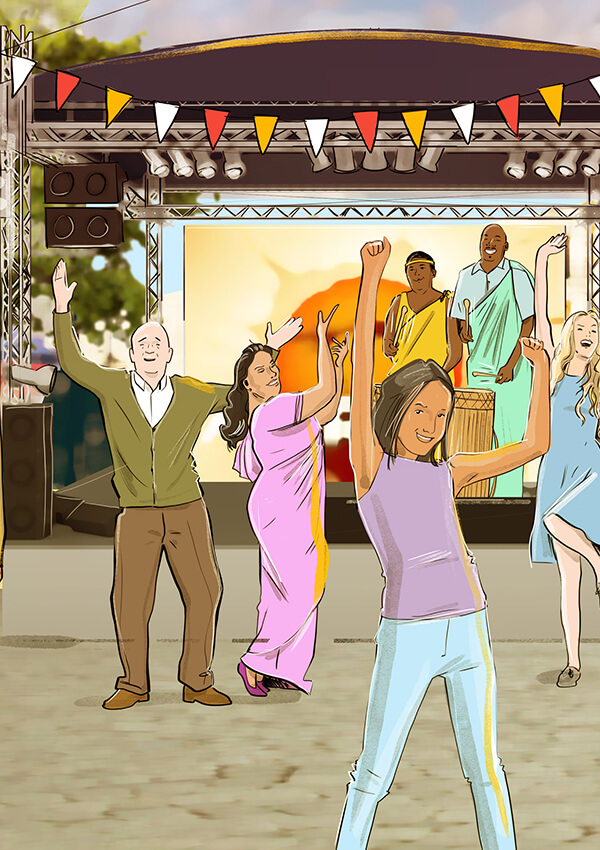
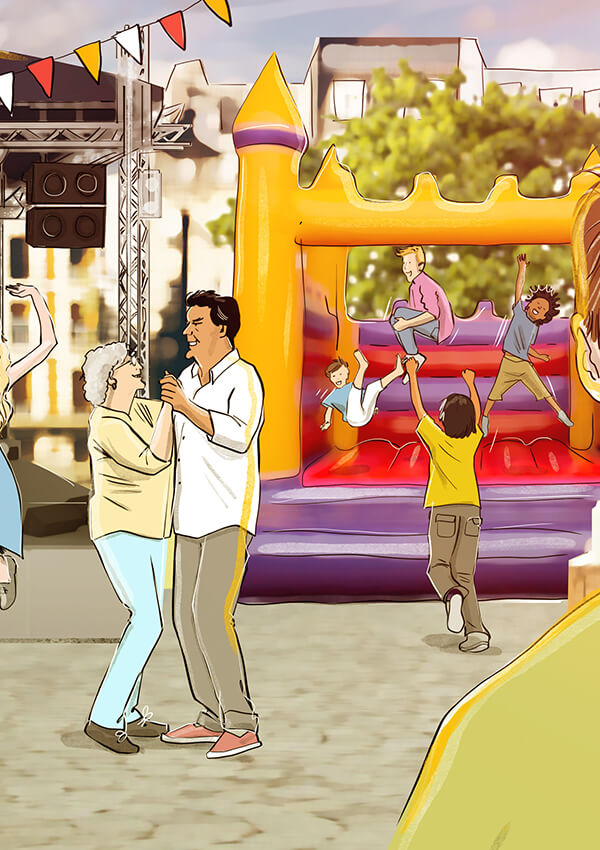


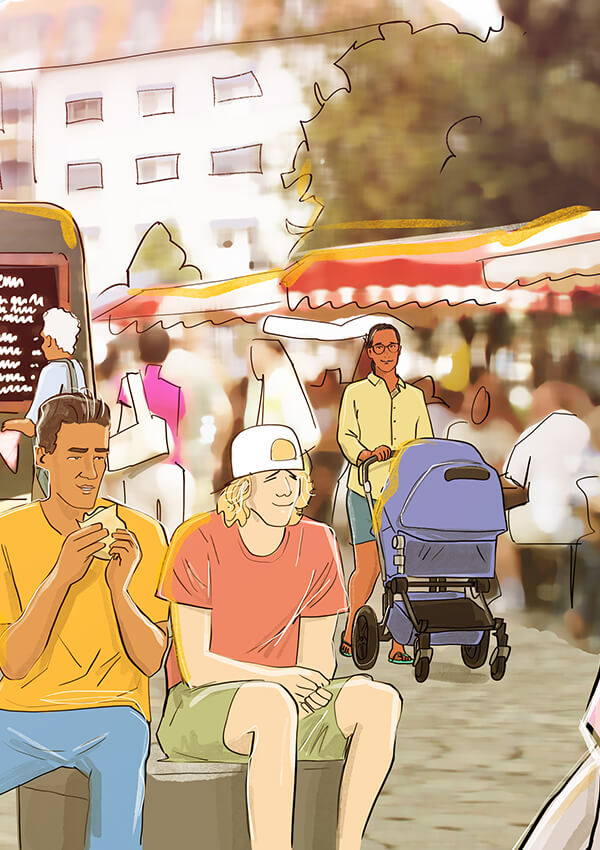

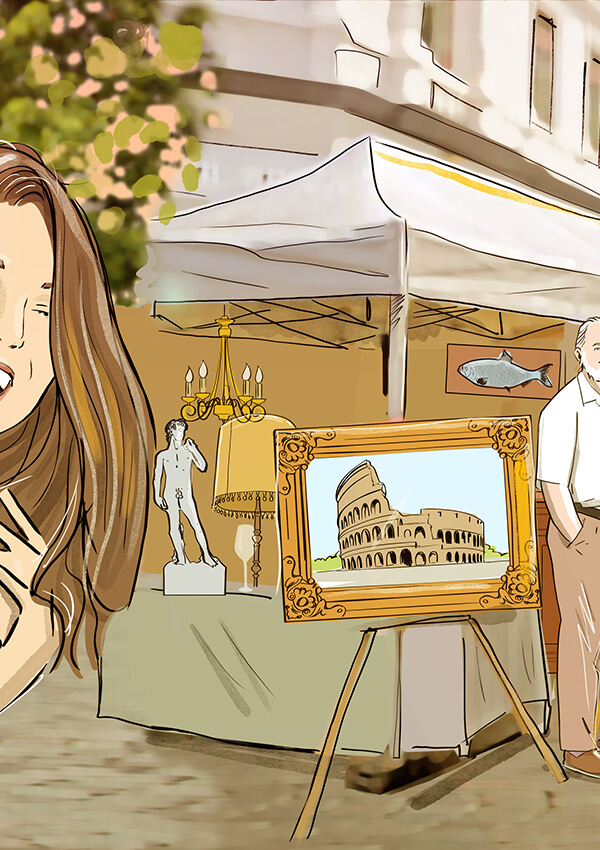
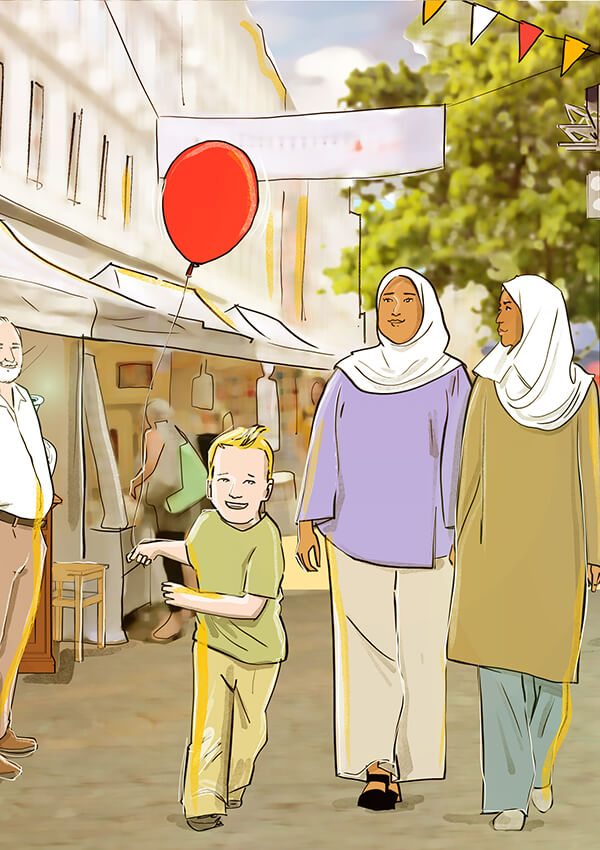


Translate from German
In multilingual worship services translations to both languages should be offered – faith and understanding
Author: Members of the circuit synod Münster, 26.06.2019